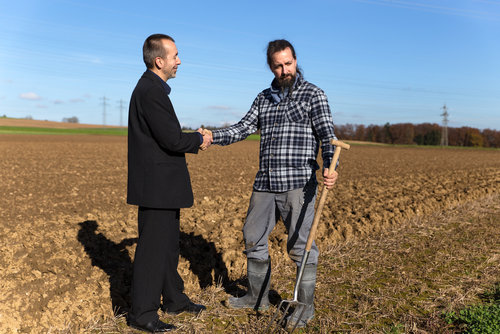Simple steps to engage outsiders about the industry
By Diego Flammini
Assistant Editor, North American Content
Farms.com
Much of the grey area between farmers and non-farmers can be attributed to miscommunication and lack of knowledge – many people outside of agriculture simply aren’t aware of how farmers go about producing crops.
There are many different ways to go about speaking with non-farmers about the issues and practices surrounding agriculture.

1)Start with the basics
Introduce yourself as you would to anyone else using the 5 Ws (Who are you? What do you grow or raise? Where is the farm located? Why do you farm? When did you start farming?).
By introducing yourself and giving some context about your background, the person listening may see you as approachable and transparent.
2)Promote benefits
When asked about how or why you raise crops a certain way, raise cattle or manage pests, focus on the benefits. By sharing why the practices are being done and promoting the benefits to the consumer, they may develop an understanding of why farmers perform certain actions.
3)Keep it local
If someone brings up an ag issue taking place in another part of the world and you’re not familiar with it, be honest with them. Discuss the issue and express how you can go about ensuring your farm doesn’t have the same issue.
4)Know your audience
Agriculture is full of terminology specific to the industry. By using baseline wording, the listener can understand the information being relayed.
5)Invite the public
Sometimes people need to see things for themselves rather than just be told. Having some people tour your farm to get a first-hand look at what you do and why you do it, may give the public a better understanding of agricultural practices.
What are some strategies you take when speaking with people outside of agriculture?